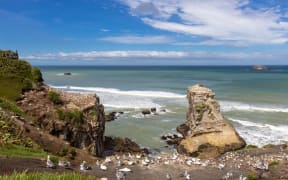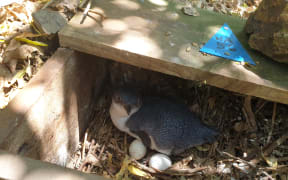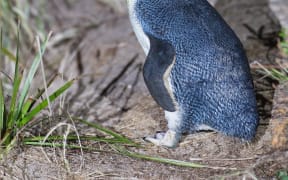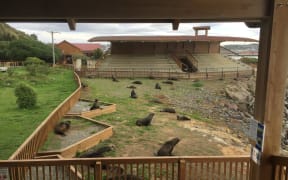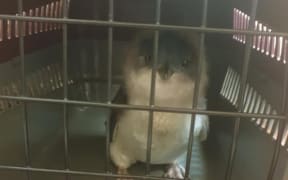A colony of little blue penguins (kororā) in North Otago's Ōamaru has gone from being a nuisance to the stars of a show that supports not only their own conservation but helps to protect their species.
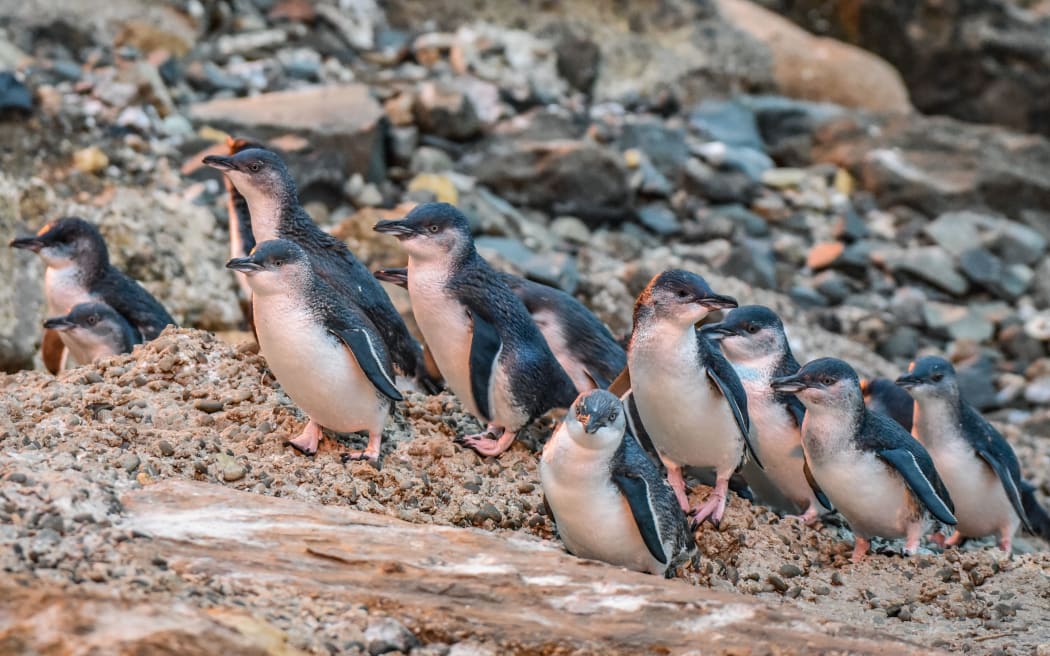
The kororā colony sits in a former rock quarry where the presence of penguins was previously seen as a nuisance by some. Photo: Tourism Waitaki/ Cindy Mottelet
The Ōamaru Blue Penguin Colony is managed by Tourism Waitaki with visitor revenue used to support research, predator control, and monitoring as well as covering the bills.
The project has lessons for the government's push to ensure regional tourism paid its own way and was not a burden for ratepayers.
The colony uses a model that combines tourism, conservation, and science, with revenue from visitors going back to protect the penguins.
It sits in a former rock quarry where the presence of penguins was previously seen as a nuisance by some.
But in 1993, a community-owned, council-run tourism operation was set up with about 30 breeding pairs.
The colony's science and environmental manager, Philippa Agnew, said that had now grown to 234 - it was about half that number when she first started there in 2006.
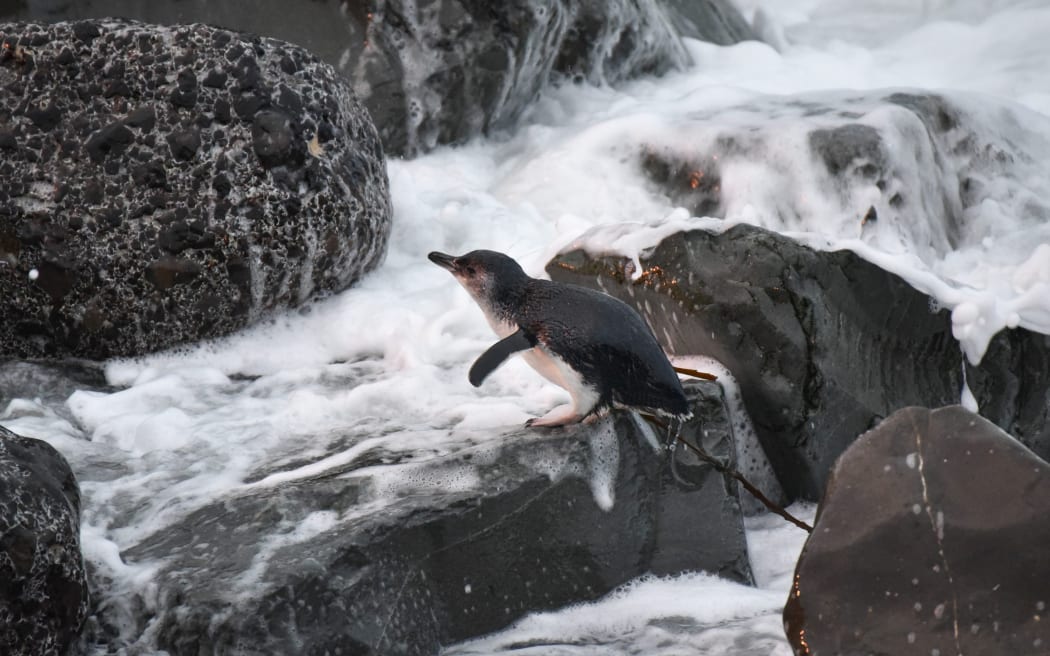
There is a livestream of the birds during their daily scrambles out of the ocean. Photo: Tourism Waitaki/ Cindy Mottelet
She believed the combination of predator control, providing nesting habitat that did not flood or collapse, and reducing disturbance was the key to their colony's growth.
"People are really curious. They like to get close to animals, but we have a structure here that - it looks a little bit artificial, but it's actually to make sure the penguins can come and go as naturally as possible - where we control where people can go.
"So [we are] making sure that people have a really good experience here, but know that they are watching the penguins without interrupting their natural behaviours."
The colony has livestreams of the birds in their nesting boxes and during their daily scrambles out of the ocean.
At the core of the colony is a long-term conservation programme to ensure penguins are protected and their population can achieve long-term stability.
They have a rehabilitation facility that is fully funded by visitor revenue. That money also enables research that can be used to help protect other colonies and the species as a whole, and monitoring of other penguins in the region.
There has been a full monitoring programme since the 1990s that oversees two colonies - the one that is also a tourism operation and another one that does not have visitor access.
Agnew said that meant they could compare the two sites and look at the differences in the penguins' breeding success and survival.
"That's a really important aspect of our operation, ensuring that what we're doing isn't having an impact on the penguins, and we can see that by looking at this other site where there aren't any visitors."
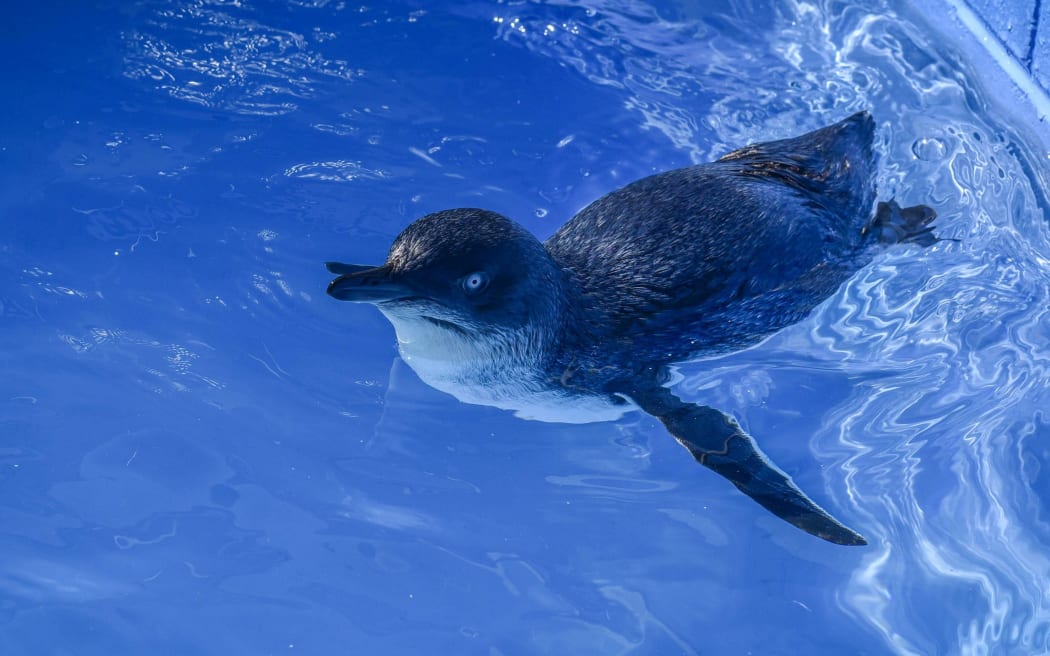
The Ōamaru Blue Penguin Colony has a rehabilitation facility that is fully funded by visitor revenue. Photo: Tourism Waitaki/ Cindy Mottelet
When tourism was well managed, she said it not only could reduce the impact on the species of focus, but also give back so they benefited.
Covid-19 hit tourist numbers to the colony hard - 90 percent of visitors were from overseas - and the attraction needed government support to stay afloat.
Agnew said without tourism, the colony would struggle to get by on donations, corporate sponsorships, and community support.
"We probably wouldn't be able to achieve as much as we do without the tourism operation in parallel with our organisation."
Domestic visitors to the colony have doubled during the pandemic.
Tourism Waitaki - the regional tourism organisation - manage and oversaw the colony.
General manager Margaret Munro said pre-Covid-19, visitor revenue from the colony helped to cover some of its costs.
"We will come out the other side of it and step back into the model where we will be aiming to have less reliance on ratepayers to contribute to the operation of the regional tourism organisation as numbers again build up."
The long-term aim was for Tourism Waitaki to have a zero reliance on local ratepayers in 10 years' time.
"Tourists are paying for not only the penguin colony, the experience they have, and the ongoing support they're giving to conservation and research, but the fund is also going towards contributing to the wider tourism aspect delivered for the whole Waitaki district."
As tourism looked to a more sustainable future, Munro said giving back and conservation should be at its heart.
